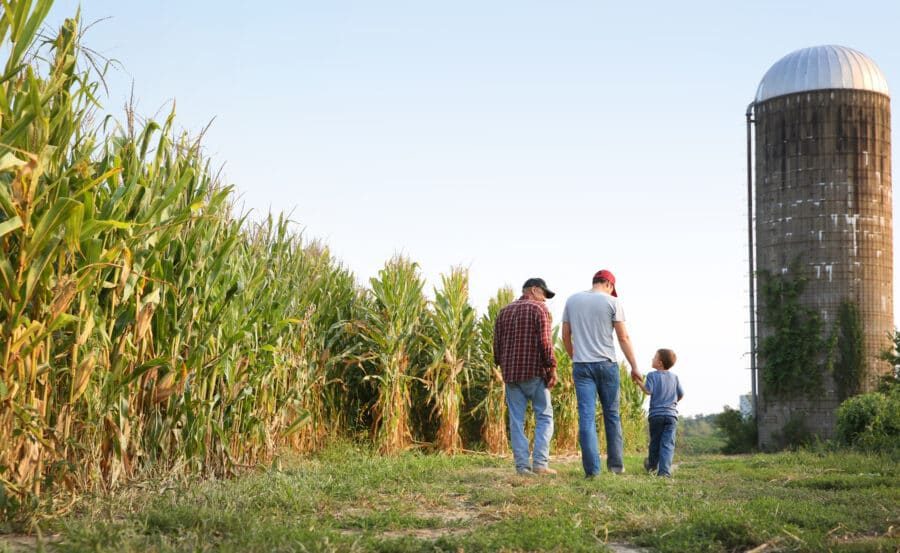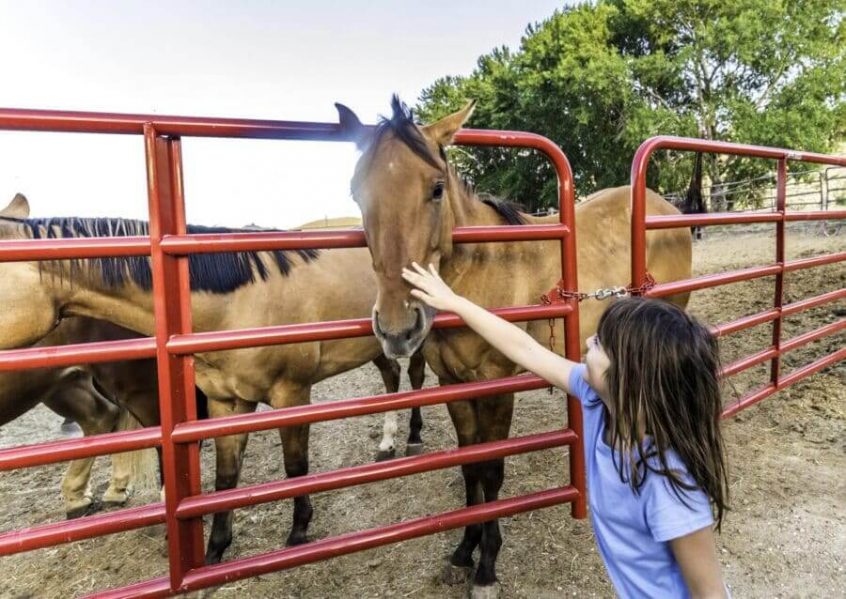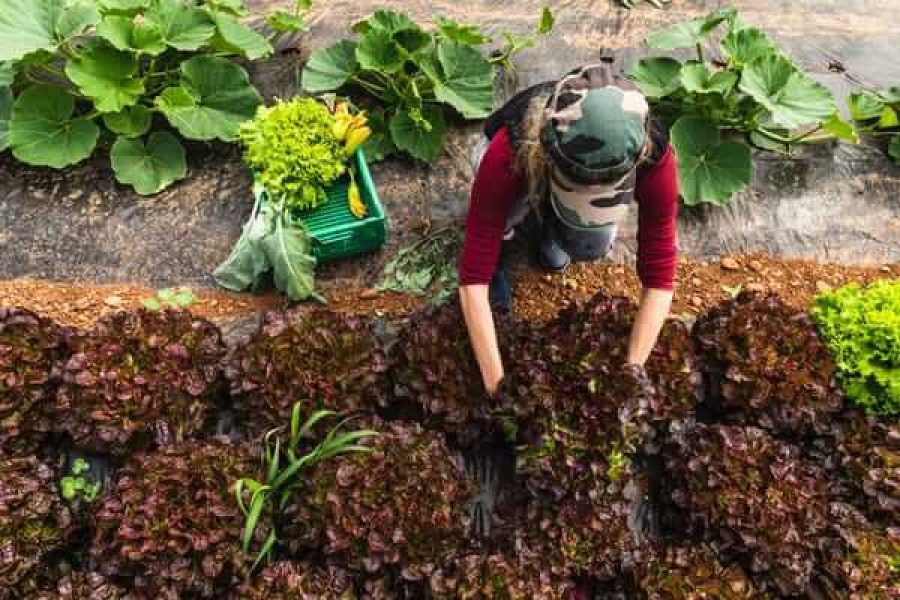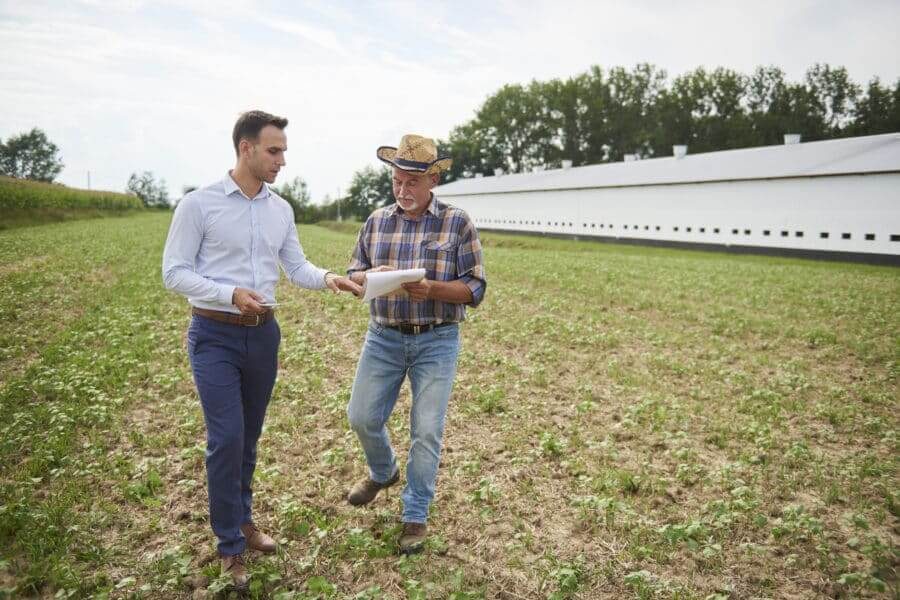Small Farm Insurance
Nurture your hobby. Protect your passion.

Nurture your hobby. Protect your passion.



A small farm, sometimes known as a hobby farm, is a small-scale agricultural enterprise that does not serve as the primary source of income for the proprietor. Small farm owners typically rely on other sources of income, such as regular day jobs or retirement pensions, and are not financially dependent on revenue that’s generated by their farm.
However, in 2018, the Tax Cuts and Jobs Act changed the tax landscape of hobby or small-scale farming. While there used to be some potential tax deductions for hobby farms, now, in order to be eligible, your small farm must be classed as a business rather than a hobby. With this change, farmers who turn their hobby into a business operation may need insurance coverage to comply with relevant regulations.
Small farms often involve the use of farm equipment and machinery for various farming activities, such as growing crops and raising livestock. With equipment, animals or livestock, insurance coverage becomes a necessity for farm owners, as it helps shield their small farm business from potential risks and losses.
While homeowners’ insurance provides some level of protection for your property, it often will not offer adequate coverage for your small farm’s specific needs. Generally, home insurance does not cover business and farming activities or essential farm structures like barns and grain silos.
To safeguard your farm, it’s important to either add coverage for incidental farming activities to your existing homeowners’ insurance policy or, if you want to transition your hobby farm over to a business venture, to acquire a separate small farm insurance policy.

When it comes to protecting your small farm, working with an experienced insurance broker like Higginbotham can make all the difference. Our team is dedicated to providing personalized service, specialized knowledge and competitive rates for your small farm insurance needs.
And, that’s not all. Unlike some brokers who only come around at renewal, your Higginbotham team will stand by your side from day two through day 365, working tirelessly to help you get the most out of your coverage.
From risk management to claims management, we work year-round to turn your uncertainties into possibilities.
To learn more about how our values-based approach drives value for you and your small farm, click here.
There are several key coverages to consider when insuring your small farm, with each offering added protection for your small farm operation. Common coverages include:
Property insurance is vital for protecting your small farm from destruction caused by fire, wind, hail and other perils. This coverage includes not only the land itself, but also structures on the premises, such as barns, sheds and other farm buildings. Depending on the size and the value of your property, you may need to increase your homeowners’ insurance limits or consider a commercial property insurance policy to help ensure that all your farm-related assets are adequately covered.
If you use equipment like tractors, combines or other farm machinery in the day-to-day maintenance of your small farm operation, equipment breakdown insurance can offer added liability protection to these valuable assets. This coverage helps minimize the financial impact of unforeseen equipment failures by offsetting the repair or replacement costs for equipment damaged due to mechanical breakdown or other covered losses.
Liability coverage, whether commercial or personal, is an important aspect of small farm insurance, as it provides protection from claims of bodily injury or property damage caused by you or other workers on your farm. Additionally, it helps cover the legal costs associated with defending against such claims. Without adequate liability coverage, your small farm could be exposed to significant financial losses in the event of an accident or injury on your property.
Your vehicles are the workhorses of your small farm, playing an indispensable role in its daily operations. That’s why having adequate coverage against potential risks and losses is essential. Personal auto insurance policies typically don’t cover vehicles like tractors or trailers, so adding a commercial auto policy may be necessary to better protect the vehicles you use to maintain your farm.
Business interruption insurance is another key coverage for small farms, as it helps cover fixed expenses while your farm is not operating at full capacity due to a covered loss. If you rely on your farm for supplemental income, this type of insurance can provide financial stability during challenging times, helping you meet financial obligations and maintain continuity.
Livestock and crop insurance help safeguard your valuable animals and crops from loss or damage due to covered perils, such as natural disasters, theft or disease. Depending on the value and quantity of your livestock and crops, adding these additional coverages may serve as another critical protective measure in the event of a loss.
Several factors can have an impact on the cost of your small farm insurance. Understanding these variables and making informed decisions about your insurance coverage can help you secure the right small farm insurance policy.
The size, location and value of your property, along with the number and type of structures on your land, can influence the cost of your farm insurance. Larger farms and those in higher-risk areas, such as regions more prone to natural disasters, typically have higher insurance premiums due to their increased risks. Employing risk management strategies can help protect your small farm and potentially secure you more affordable insurance rates.
The type of farming activities you engage in can also affect your insurance costs, as certain activities may pose higher risks. For example, livestock farming or crop production may have higher insurance premiums than less hazardous activities, such as agritourism or hobby gardening. The scale of your farming operation can also influence your insurance costs, with larger operations typically requiring higher coverage limits and, therefore, higher premiums.
Working with a farm insurance agent or broker can help you secure the most competitive rates for your small farm insurance coverage. Insurance brokers can do the rate shopping for you, helping you find the best possible coverage for your farm while removing the grunt work that comes with finding the best insurance policy for your needs.

Small farms face a range of risks, including property damage, equipment breakdown, liability claims and loss of income due to business interruption. These risks can arise from a variety of sources, such as natural disasters, theft, vandalism, accidents, injuries or equipment malfunction. Risk management for small farms may involve strategies like implementing safety protocols, investing in appropriate insurance coverage and regularly inspecting and maintaining equipment to prevent breakdowns or accidents.
Understanding and proactively mitigating the risks associated with hobby farming helps ensure the ongoing success and sustainability of your farming operation. But, navigating the landscape of agribusiness risk management can be difficult. That’s where Higginbotham comes in.
Our team of insurance and risk management specialists identifies potential risks, devises strategies to minimize those risks and helps create a loss control plan for your small farm. With Higginbotham by your side, you can have greater confidence that your farm is protected, allowing you to focus on cultivating your hobby.

When you choose Higginbotham, you get more than an insurance broker: you get a partner in your success. Our team is committed to providing customized care and coverage that’s tailored to your individual needs. Through our relationships with national farm insurance carriers, we’re able to shop to find the best possible rate and the best possible coverage for your needs. And, we don’t stop there. Our team provides year-round support and value through our Day Two Services®.
With Higginbotham by your side, you can have the confidence that comes from knowing your farm is effectively protected.